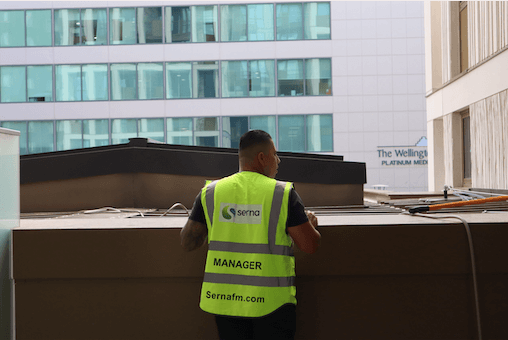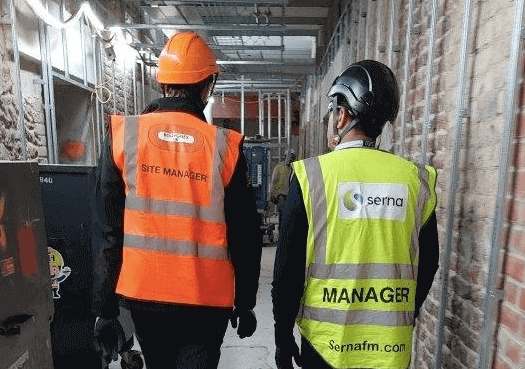Facilities management in construction is a critical function that ensures the seamless operation and maintenance of buildings and infrastructure throughout their lifecycle. From the planning and design stages to post-construction and long-term upkeep, facilities management bridges the gap between construction and functionality. It combines technical expertise with operational efficiency to deliver safe, sustainable and cost-effective environments.

What Is The Role Of Facilities Management In Construction?
Facilities management in construction involves overseeing the functionality, safety and efficiency of built environments. This includes managing systems such as heating, ventilation, air conditioning (HVAC), lighting and plumbing.
The goal is to ensure that these systems align with the intended purpose of the building while meeting user requirements. According to the Institute of Workplace and Facilities Management (IWFM), effective facilities management can reduce operational costs by up to 20%.
Facilities managers collaborate with architects, engineers and construction teams during the design and building phases. By integrating facilities management principles early, they help ensure that structures are designed for optimal operation and maintenance. This forward-thinking approach minimises future issues and enhances the building’s value over time.
What Are Key Responsibilities In Construction Facilities Management?
The responsibilities of facilities management in construction extend far beyond routine maintenance. One of the primary tasks is space planning and resource allocation to maximise the building’s functionality. Additionally, facilities managers are responsible for energy efficiency measures, which play a significant role in reducing carbon footprints and meeting sustainability targets.
Another vital responsibility is ensuring compliance with health and safety regulations. Facilities managers are tasked with conducting regular inspections and maintaining compliance with legal standards, such as fire safety protocols and accessibility requirements. This proactive approach safeguards the well-being of occupants and helps avoid costly penalties for non-compliance.
Can Facilities Management Include Pre-Construction Planning?
Facilities management begins long before the building’s first brick is laid. During the pre-construction phase, facilities managers provide insights into design and material selection. Their expertise ensures that operational considerations, such as ease of maintenance and energy efficiency, are prioritised in the construction plans.
This early involvement also facilitates the integration of technology, such as Building Information Modelling (BIM). BIM allows facilities managers to simulate operational scenarios, predict potential challenges, and optimise building performance. Research shows that BIM integration can reduce project time by 20% and costs by up to 15%, underscoring the value of facilities management in the planning stages.
Does Facilities Management Include Post-Construction Operations?
After construction is completed, the role of facilities management shifts to the operational phase. This involves overseeing day-to-day functions, such as cleaning, security, and equipment maintenance. Effective facilities management ensures that buildings operate efficiently and continue to meet the needs of occupants.
Routine inspections and preventive maintenance are crucial components of this phase. Facilities managers schedule regular checks to identify and address potential issues before they escalate. This proactive approach not only extends the lifespan of building systems but also minimises costly disruptions.
Is Sustainability Accounted For With Construction Facilities Management?
Sustainability has become a cornerstone of modern construction, and facilities management plays a pivotal role in achieving it. From reducing energy consumption to implementing waste management strategies, facilities managers are instrumental in creating eco-friendly environments.
Green building certifications often require ongoing facilities management to maintain sustainable practices. By monitoring energy usage, managing water consumption, and promoting recycling initiatives, facilities managers contribute to the broader environmental goals of construction projects.

Do Facilities Managers Play A Role In Cost Efficiency?
Cost management is a fundamental aspect of facilities management in construction. By implementing preventive maintenance schedules and optimising resource allocation, facilities managers help control operational expenses. According to a report by IFMA, organisations with effective facilities management save an average of £5 per square metre annually on operational costs.
In addition to cost savings, facilities management also enhances property value. Well-maintained buildings are more attractive to tenants and buyers, ensuring a higher return on investment for property owners.
What Is The Future of Facilities Management in Construction?
As the construction industry evolves, so too does the role of facilities management. The focus on sustainability, coupled with technological advancements, is reshaping the field. Facilities managers are now seen as strategic partners who contribute to the long-term success of construction projects.
With increasing emphasis on smart buildings and environmental responsibility, the demand for skilled facilities managers is set to grow. Their ability to bridge the gap between construction and operations ensures that buildings remain functional, sustainable, and aligned with user needs.
Summary
Facilities management in construction is an essential discipline that ensures buildings are not only well-designed but also efficient and sustainable throughout their lifecycle. By combining operational expertise with a focus on innovation, facilities managers play a crucial role in the success of construction projects. As technology and sustainability continue to drive the industry forward, the importance of facilities management will only become more pronounced.

